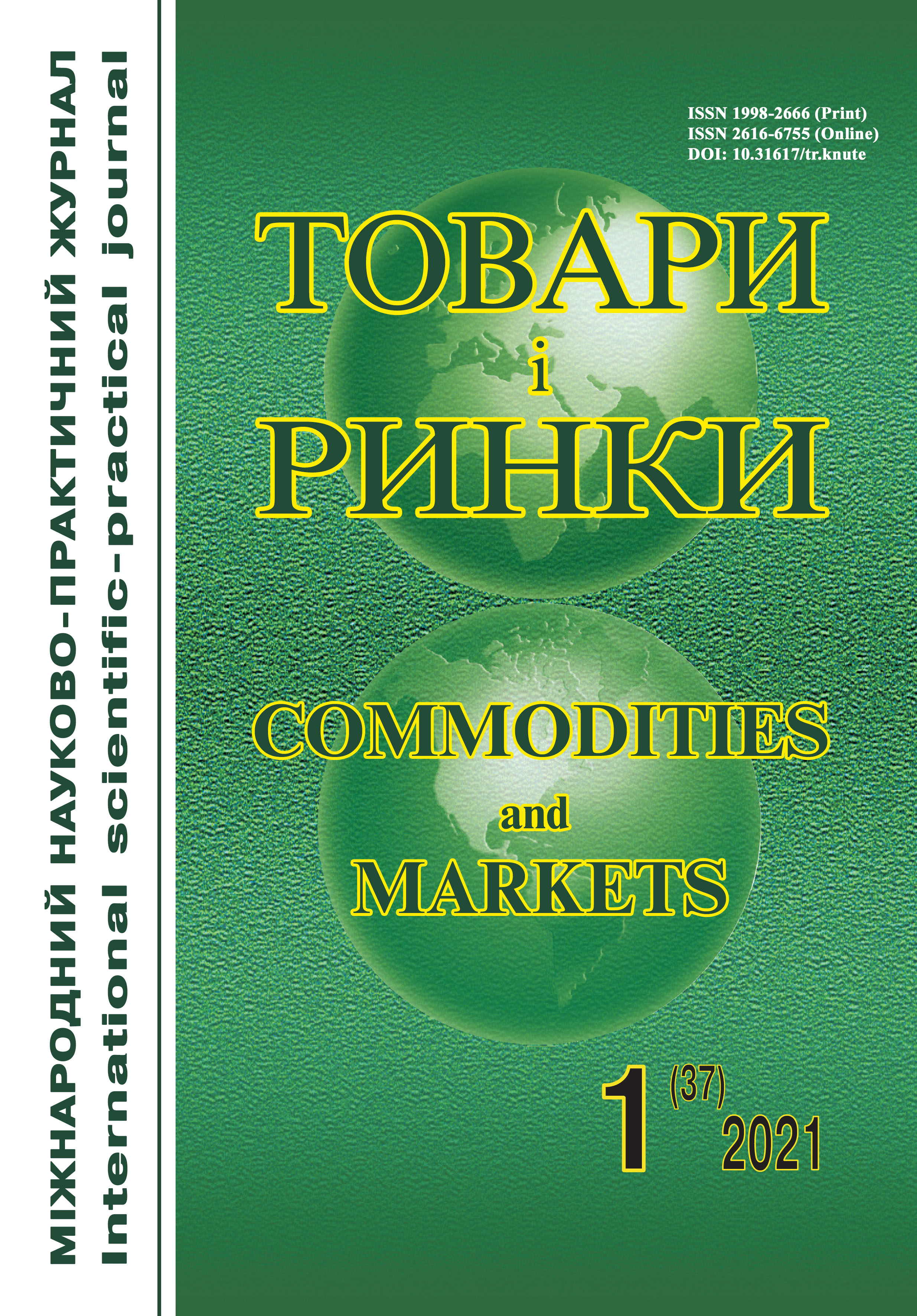Cybersecurity and the information protection during the COVID-19 pandemic
DOI:
https://doi.org/10.31617/tr.knute.2021(37)03Keywords:
cybersecurity, cyberattack, cyber risk, cybercrime, COVID-19 pandemic, fishing., COVID-reality, tokenAbstract
Background. The society has entered the era of innovation, where industrial robots, 3D-printing, cloud sources of information, unmanned vehicles in mass production, 4G and 5G communications, genomics, VR-technologies, smart cities are becoming the usual practice and form the new face of management. However, the COVID-19 pandemic is changing our everyday life: the population is experiencing concern and worry, making actual the need for help and support, a sense of safety and a desire for certainty.
The aim is to identify trends in the spread of cybercrime in the information security market during the COVID-19 pandemic and to substantiate the recommendations for cybersecurity by enterprises in the conditions of COVID-reality.
Materials and methods. In the research process we used a set of general scientific and special methods: analytical, historical, and logical generalizations; economic and statistical methods (selective observation, comparative and technical and economic analysis, grouping based on the usage of MS Excel software products); marketing and sociological researches (surveys) as well as the expert assessments.
Results. Every day groups of experienced cybercriminals seize the control of someone else’s cloud environment, servers, computers and mobile gadgets by launching the series of destructive programs against particular web-sites. Powerful attacks are organized by affecting the servers and clients’ computers, which in a matter of seconds shut down ATMs, the telephone lines, the whole companies, and even the Presidential websites around the world. In different countries, more and more attention is paid to the cybersecurity and the information resources management.
Conclusion. Automated control systems will make possible the use of technical devices instead of workforce in the life-threatening circumstances. In addition, it is very important to change the stereotype in society that a person and his personal data are not interesting to anyone, it is advisable to train professionals to use secure information transfer protocols, use secure information systems to work, and IT workers – to justify the need to apply new secure customer principles in information systems of enterprises.
References
Pro osnovni zasady zabezpechennja kiberbezpeky Ukrai’ny: Zakon Ukrai’ny vid 5 zhovtnja 2017 roku № 2163-VIII (V redakcii’ Zakonu Ukrai’ny vid 24.10.2020 № 2163-VIII) [On the Basic Principles of Cyber Security of Ukraine: Law of Ukraine of October 5, 2017, № 2163-VIII (As amended by the Law of Ukraine of October 24, 2020, № 2163-VIII)]. (2020). Retrieved from https://zakon.rada.gov.ua.
Marushhak, A. I. (2018). Informacijno-pravovi aspekty protydii’ kiberzlochynnosti [Information and legal aspects of combating cybercrime]. Informacija i pravo – Information and law, 1 (24), 127-132.
Gucaljuk, M. V. (2019). Okremi aspekty borot’by z organizovanoju kiberzlochynnistju [Some aspects of the fight against organized cybercrime]. Aktual’ni problemy upravlinnja informacijnoju bezpekoju derzhavy – Actual problems of information security management of the state: Proceeding sof the International Scientific and Practical Conference. (pp. 199-201). Kyi’v: Nacional’na akademija SBU.
Oficijnyj sajt Merezhevoi’ akademii’ Cisco [Official site of the Cisco Networking Academy]. Retrieved from https://www.netacad.com/ru/about-networking-academy.
Oficijnyj sajt Kiberpolicii’ Ukrai’ny [Official site of the Cyber police of Ukraine]. Retrieved from https://cyberpolice.gov.ua.
Kryminal’nyj kodeks Ukrai’ny vid 5 kvitnja 2001 r. № 2341-ХІV [Criminal Code of Ukraine of April 5, 2001, № 2341-XIV]. Verhovna Rada Ukrai’ny – Verkhovna Rada of Ukraine. Retrieved from http://zakon.rada.gov.ua.
Oficijnyj sajt TOV "KPMG-Ukrai’na" [Official site of "KPMG-Ukraine" Ltd.]. Retrieved from https://home.kpmg/ua/uk/home/about/overview.html.
Novye ugrozy kiberbezopasnosti: vse namnogo masshtabnee, chem vy dumali [New cybersecurity threats: everything is much larger than you thought]. Retrieved from https://habr.com/ru/company/lenovo/blog/445184.
Dubov, D. V. (2014). Kiberprostir jak novyj vymir geopolitychnogo supernyctva [Cyberspace as a new dimension of geopolitical rivalry]. Kyi’v: NISD.
Pechenjuk, A. V. Informacijna bezpeka Ukrai’ny jak skladova nacional’noi’ bezpeky [Information security of Ukraine as a component of national security]. Retrieved from https://www.ndifp.com/1561.



